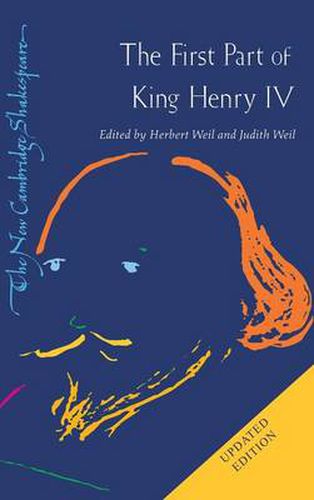Readings Newsletter
Become a Readings Member to make your shopping experience even easier.
Sign in or sign up for free!
You’re not far away from qualifying for FREE standard shipping within Australia
You’ve qualified for FREE standard shipping within Australia
The cart is loading…






The New Cambridge Shakespeare appeals to students worldwide for its up-to-date scholarship and emphasis on performance. The series features line-by-line commentaries and textual notes on the plays and poems. Introductions are regularly refreshed with accounts of new critical, stage and screen interpretations. This second edition of The First Part of King Henry IV offers a theatrical perspective on the origins of Shakespeare’s play and the history of its interpretation. In their introduction the editors, Herbert and Judith Weil, clarify the play’s de-centred dramatic structure and call attention to the effects of civil war on a broad range of relationships. Falstaff’s unpredictable vitality is also explored, together with such important contemporaneous values as honour, friendship, festivity and reformation. Lexical glosses make the rich wordplay accessible, while the notes provide a thorough commentary on Shakespeare’s transformation of his sources. A supplementary section by Katharine Craik focuses on important modern interpretations.
$9.00 standard shipping within Australia
FREE standard shipping within Australia for orders over $100.00
Express & International shipping calculated at checkout
The New Cambridge Shakespeare appeals to students worldwide for its up-to-date scholarship and emphasis on performance. The series features line-by-line commentaries and textual notes on the plays and poems. Introductions are regularly refreshed with accounts of new critical, stage and screen interpretations. This second edition of The First Part of King Henry IV offers a theatrical perspective on the origins of Shakespeare’s play and the history of its interpretation. In their introduction the editors, Herbert and Judith Weil, clarify the play’s de-centred dramatic structure and call attention to the effects of civil war on a broad range of relationships. Falstaff’s unpredictable vitality is also explored, together with such important contemporaneous values as honour, friendship, festivity and reformation. Lexical glosses make the rich wordplay accessible, while the notes provide a thorough commentary on Shakespeare’s transformation of his sources. A supplementary section by Katharine Craik focuses on important modern interpretations.